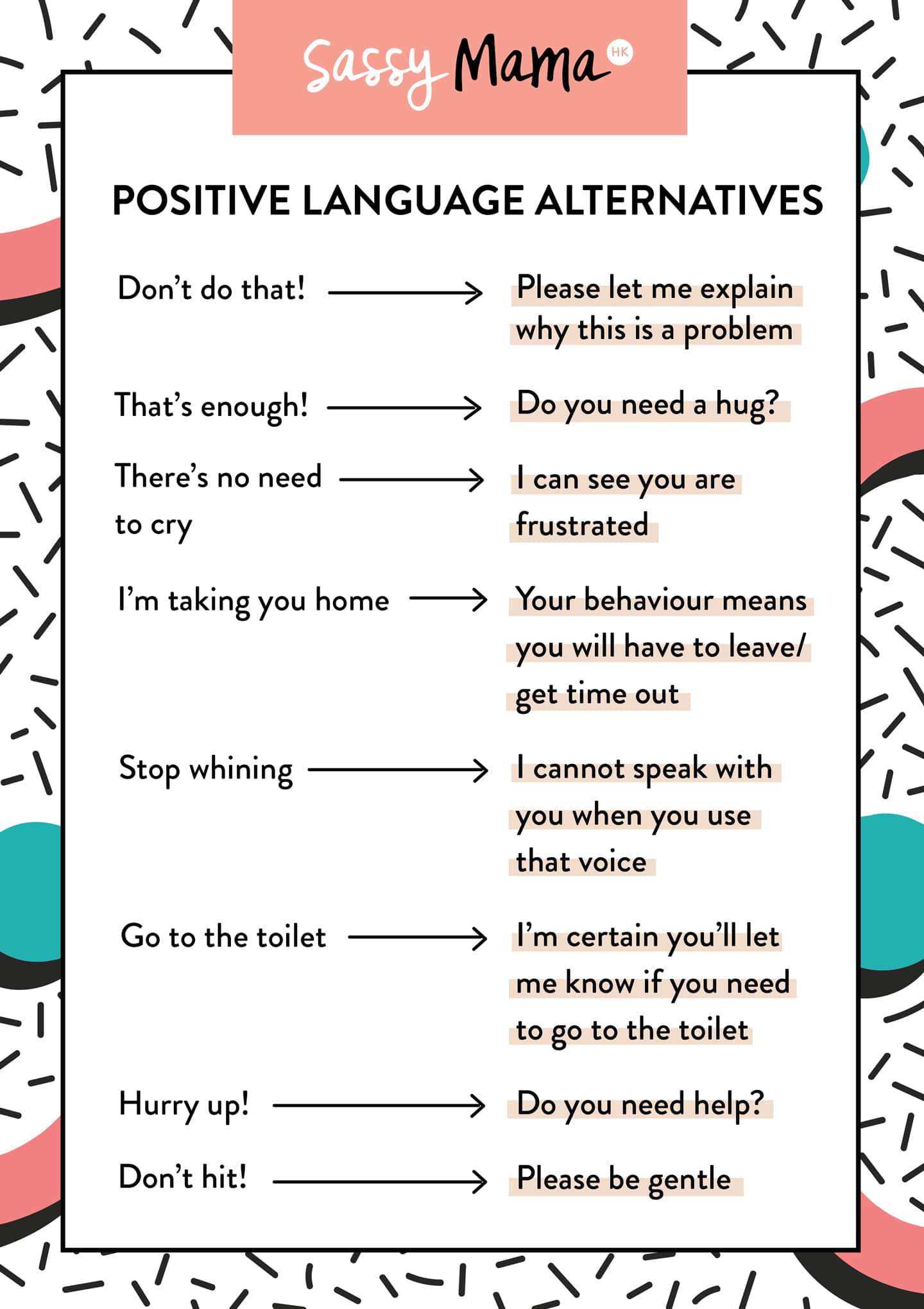
And, in turn, earn their love and respect too.
Unconditional positive regard, a 1950s concept coined by psychologist Carl Rogers, asks therapists to accept and respect their clients rather than judge or evaluate them. This approach to building rapport may have caught on in counselling circles, but parents of past decades may not have applied the same set of values to the home. Ever heard these phrases being uttered? “I am not asking you, I am telling you!”, “Quiet down, shush!” and “I will give you something to cry about!”
We may laugh about it being a cliché, but the truth is that many of our parents may have made sarcastic, illogical, and authoritarian demands on us. And because we are often a product of how we were brought up, today’s Generation X and Millennial parents may continue to do the same. If our peers or partners spoke to us using such language we would not allow it, so why do we use it with our children? They deserve to be treated with respect and fairness.
Read more: Does Your Childhood Affect How You Parent?

Why Adopt Respectful Parenting?
It is known that parenting methods change, especially as we become acutely aware of how these approaches affect children. Mental health concerns are increasingly present in childhood and adolescence, and unfortunately, many parenting behaviours may even cause anxiety in children. Constant criticism, excessive control (often known as “snow plough” or “helicopter” parenting that demonstrates a level of involvement that does not allow for age-appropriate and autonomous decision making), and a lack of warmth and positive affection, are shown to be detrimental in the long run. Children are unable to problem solve, lack empathy and see how their actions affect others.
Let’s look at five phrases that we may sometimes use (or variations of), what they mean for our children and how we could adopt a more respectful approach instead.
Read more: 10 Tips For Better Parenting: Why It Begins With Self-Care

“I’m not asking you, I’m telling you!”
Authoritarian phrasing is one aspect of parenting that can be reconsidered in an attempt to show more respect toward your school-aged children. Respectful parents aim for cooperation in the household rather than command via fearful compliance. Making demands around every last matter can be exhausting and met with resistance – everything from when and how your child cuts their hair, to what they wear to lunch on Sunday can be a battle. Instead of issuing orders, try allowing them to make their own age-appropriate decisions that sit within reasonable social and cultural boundaries. Explain that certain hairstyles and clothing options may not be acceptable at Grandma’s 75th birthday and that if they push the boundaries there may be consequences. Do remember that consequences that involve feelings, emotions and responsibilities to family and loved ones are reasonable, while consequences that hinge on embarrassment, fear and humiliation are not.
“Be quiet!”
Respectful parents also model, through clear language, their own boundaries and expectations for behaviour. Instead of screaming at children to stop making so much noise, parents can assert themselves through an explanation of why the loud noise is troublesome and not appropriate for the particular environment they are in. Parents can use emotion and feeling words, such as “I feel frustrated that you do not recognise I have a headache” or explanatory phrasing such “I am unable to finish this task because your loud voices are distracting me”. This is a way of modelling communication skills that aim for building empathy. Of course, if this does not work, you have the power to remove yourself from the situation. Regroup, recharge and revisit the situation. You might find the noise and energy to be less impactful – they are kids, after all!
“That’s nothing to cry about!”
Children cry for a number of reasons and what parents deem worthy and unworthy of tears can be received by the child as dismissive and hurtful. Sometimes parents follow that up with a threat of punishment (often because they are frustrated themselves). In an era and culture where physical punishment can be seen as akin to child abuse, the idea of threatening pain is counterproductive and simply absurd. In addition, phrasing with a threatening tone can be seen as verbal abuse. This language builds doubt and fear, both traits that sit firmly at the foundation of childhood and adolescent anxiety. It would be much more helpful to acknowledge the child’s frustration, understand the reasons for it and help them to articulate it clearly.

“Stop your whining!”
Parents who raise children with respect still have to say no from time to time. And this often leads to loud and repeated complaints (don’t we know it!). While the persistent and nagging behaviour may actually get them the item or activity demanded, children do receive something beneficial through whining: attention. Negative attention is better than none, or not much, so reconsider how to guide your response to it in a structured, firm, but loving way. Set an expectation for how the child is to speak to you, share what you will do if they continue, and of course, follow through each and every time. Tiresome behaviour can be modified in a way that is kind yet firm.
“Do not make me take you home”
Lastly, respectful parenting hinges on integrity and consistency. Empty threats that begin with the phrase “do not make me” become trite and ineffective, especially if used without follow through. Try cooperating to create essential family agreements rather than arbitrary rules that appear out of nowhere and seem impossible to enforce. For example, you could reach an agreement with your child that he or she must always be careful with other people’s property (including toys, homes, cars and so forth). This gives you, as a parent, leverage to remind your child about his or her inappropriate behaviour and how it is breaking the agreement. Over time, if everyone is invested in forming a succinct but fair list of rules, it gives both parents and children boundaries to operate within.
Read more: Expert Tips To Help Regulate Your Child’s Emotions

At the basis of respectful parenting is the idea that children are equals. Equals in terms of being individual human beings with distinct personalities and thoughts. Although this equality seems far off when you are making meals, helping them bathe and cleaning up after them, it does not mean that they should be controlled. That is exhausting and endless, and ultimately disrespectful. Consider poet Khalil Gibran’s words on children in his 1920s work, The Prophet:
Your children are not your children…
They are the sons and daughters of Life’s longing for itself
They came through you but not from you,
And though they are with you yet they belong not to you.
How you talk to and treat your children will lay the foundation for what lies ahead. Choosing to be kind and empathetic will build a lifelong, mutually-respectful and loving relationship. Take a look at how you could replace some of the words and phrases you may sometimes use with your kids. Click on the image to download.
Read more: How To Coach Your Teens Through Tough Times And Problem Behaviour
 View All
View All











 View All
View All



 View All
View All

 View All
View All













